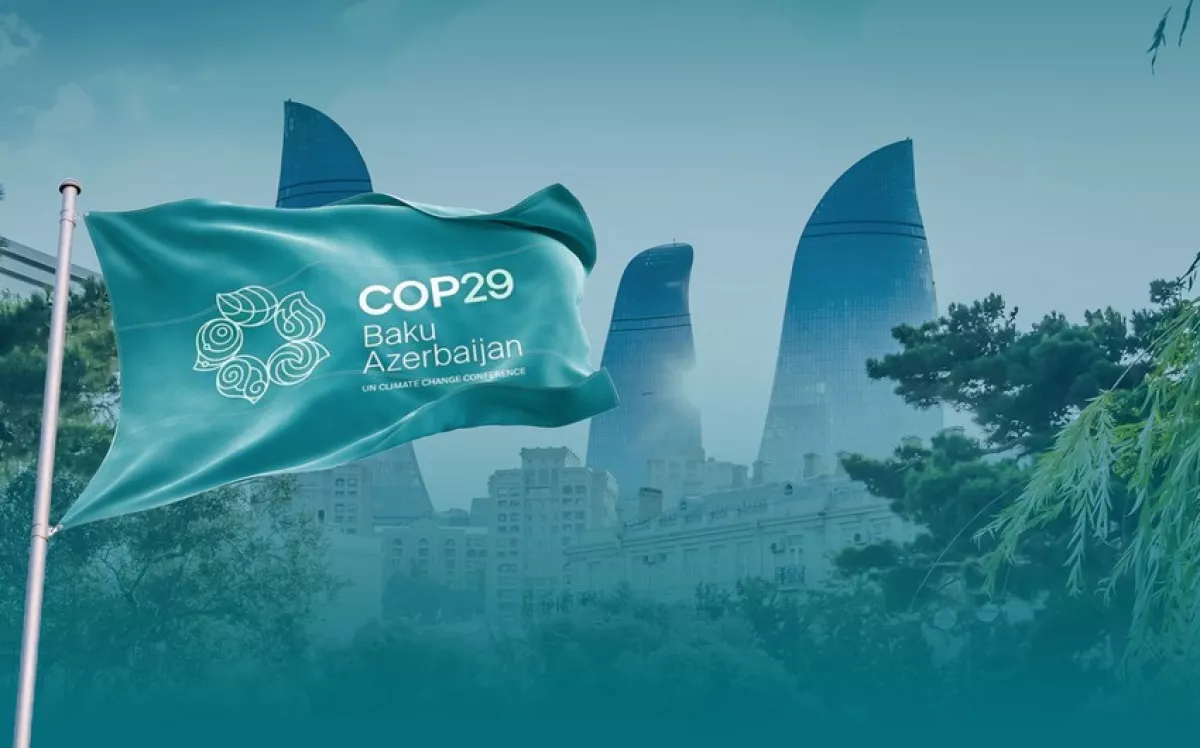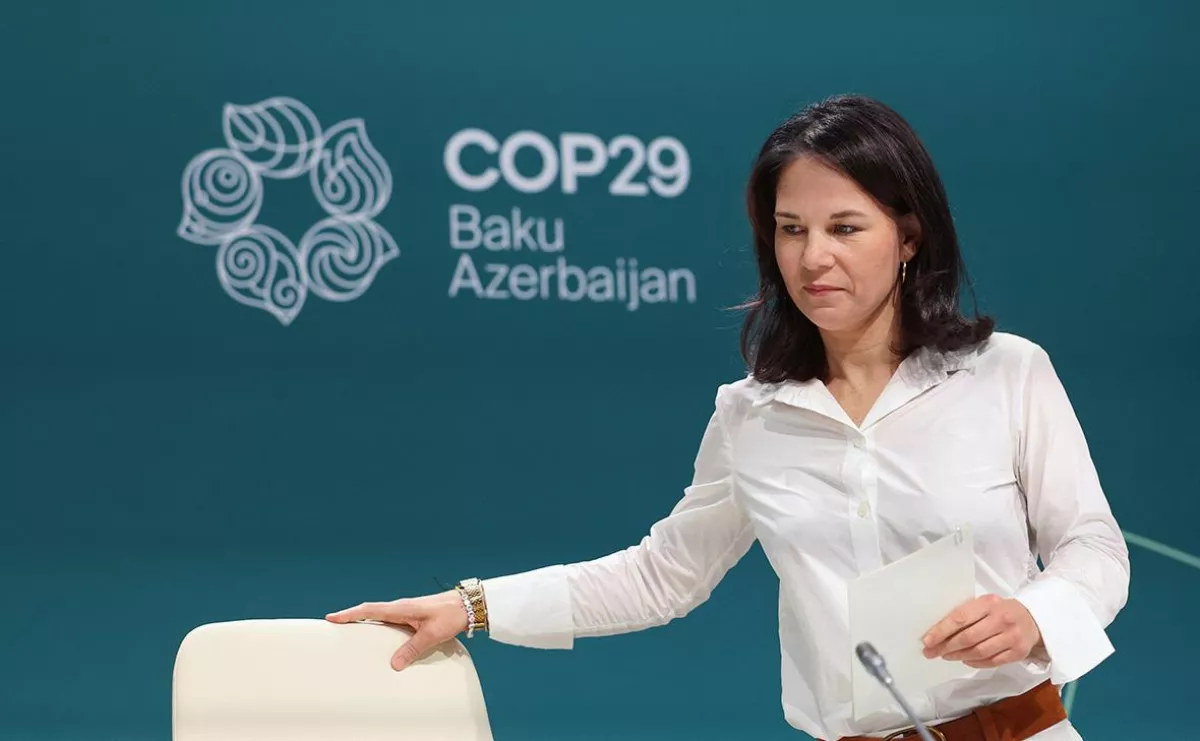Breakthrough of the Baku wind Postscript to COP29
On the night of November 23-24, the final plenary session of the 29th Conference of the Parties to the United Nations Framework Convention on Climate Change took place. To put it simply, COP29 came to an end. A celebration of human solidarity, with a bitter aftertaste of a common threat, perfectly blended into the sharp atmosphere of Azerbaijan’s capital. The artificial dead sperm whale washed up on the Baku boulevard served as a poignant reminder of how much needs to be done to save the Earth, seeming more alive than ever.
The President of COP29, Minister of Ecology and Natural Resources of Azerbaijan, Mukhtar Babayev, noted before the summit concluded that no one wanted to leave Baku without achieving a good result on the main issues. Yes, the gentle Baku autumn was conducive to work, and after work – to relaxation. Multilingual groups of guests poured out of restaurants into the heart of Baku's night, warming it with their breath. The planet embraced the city in its arms.

Many feared that the main goals of the conference would remain unachieved, likening hopes of success to a fish stranded on the shore (though it is known that a sperm whale is a mammal – Ed.) in the seaside park. Alongside objective challenges, there were also subjective ones – at times in the form of underlings, and at other times powerful political figures, who sought either to sabotage the forum or, at the very least, minimize its significance.
In the end, the outcome was quite the opposite. Azerbaijan approached the task with professionalism and without the hesitations of a newcomer. President Ilham Aliyev’s speech at the Small Island Developing States Summit, held within the framework of COP29, in which he criticized the neocolonial policies of France and the Netherlands, sent a clear message that Azerbaijan would not be overly diplomatic. The strategy was one of assertiveness. Some were notably offended. For instance, the French Minister for Ecology, Energy, and Climate, in response to the constructive criticism, cancelled her visit to Baku at the last minute. "Colonial honour" proved to be more important than the global agenda.
The ever-familiar Greta Thunberg provided some amusement. Once a teenager, now a young woman, she decided to make another appearance on the world stage, this time with anti-Azerbaijani slogans, choosing Yerevan as her location. Upon reflection, there is a deep and tragic irony in the symbiosis between Greta and Armenia. Both Armenian society and Thunberg are experiencing a sort of crisis of age. Armenians are burdened with "ancientness," while Greta, on the other hand, represents youth. Neither works. Maturity is needed.
Yet even German statesmen (or, in this case, women) lacked that maturity. German Foreign Minister Annalena Baerbock visited Baku, tactlessly lecturing Azerbaijan on human rights. Dressed entirely in white, she radiated an intrusive and inappropriate cheerfulness, sharply contrasting with the seriousness of the event.

There were also prominent figures from the United States, often imagined with diamond cufflinks (though not verified, this image feels fitting). Even more striking was the departure of "the most serious" among them—Frank Pallone, a key figure in the pro-Armenian lobby, who, unable to withstand being ignored by the head of state (President Aliyev never granted him an audience), hurriedly left on a special charter flight. As seen, what was meant to be a global warming conference ended up delivering an icy shower to its critics.
So, what is the outcome? A well-organized conference, as reflected in the resolution that officially thanked Azerbaijan for its high level of COP29 organization. Several important decisions were made during the conference, much of which has already been covered. However, it is worth highlighting the most critical issue on the agenda—the one that sparked intense debates and caused the delegations to remain in Baku an extra day: how much the developed countries should annually contribute to helping developing nations address climate issues or the new collective climate financing target. After prolonged discussions, a document was adopted, setting the target to increase from the current $100 billion to at least $300 billion per year.
With that, COP29 came to a close, and the guests began packing their bags.
COP29 will be remembered as one of the most dramatic and productive climate conferences, already being referred to as the "Baku Breakthrough." Azerbaijan rolled up its sleeves and got to work—just as it did when building its state and military and reclaiming its lands. Once again, the country demonstrated its ability and commitment to hard work.
While a warm autumn embraced Baku during the conference, today the temperature has sharply dropped by several degrees. A cold northern wind has taken hold of the Absheron Peninsula. Let this be seen as a positive sign.








